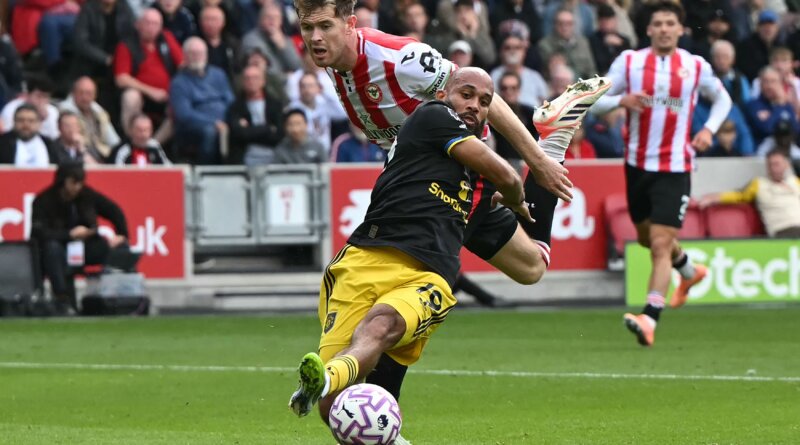Nathan Collins Avoids Red Card After Mbeumo Penalty Incident
Nathan Collins penalty controversy took center stage during Brentford’s 3-1 victory over Manchester United, as questions swirled around referee Craig Pawson’s decision not to send off the Irish defender. The incident occurred when Collins pulled down Bryan Mbeumo in the penalty area, seemingly denying a clear goalscoring opportunity. Despite the drama, the Premier League provided a detailed explanation for why Collins remained on the pitch.
Nathan Collins Penalty Controversy: What Happened?
The pivotal moment unfolded in the second half as Manchester United pressed for a way back into the match. Brentford’s Bryan Mbeumo broke free inside the box, only to be halted by Nathan Collins, who appeared to pull the forward down from behind. Referee Craig Pawson immediately pointed to the spot for a penalty but surprised many by issuing only a yellow card to Collins rather than a straight red.
The Premier League’s Official Ruling
In the aftermath, the Premier League released a statement clarifying the rationale behind the officiating. According to the League, while Collins’ challenge on Mbeumo was worthy of a penalty and did stop a promising attack, it did not meet the full criteria for a red card. The key factor was whether Collins had made a genuine attempt to play the ball.
Under current Laws of the Game, a player who denies an obvious goalscoring opportunity (DOGSO) with an attempt to play the ball is shown a yellow card. A red card is reserved for instances where the defender makes no attempt to play the ball or commits a serious foul or handball. The Premier League determined Collins’ actions fell under the former category: a professional foul where he tried to play the ball, thus warranting caution but not dismissal.
Analysis: Did Craig Pawson Get It Right?
The referee’s decision relied heavily on interpreting Collins’ intent. Slow-motion replays suggest the defender did reach out in an attempt to play the ball, albeit unsuccessfully, before catching Mbeumo. The Premier League’s guidance aligns with International Football Association Board (IFAB) rules, which are designed to avoid “double jeopardy” — penalizing teams with both a penalty and a red card for the same offense if there is a genuine attempt to play the ball.
The Impact on Brentford vs Manchester United
The decision was crucial, as Brentford converted the penalty to solidify their lead but continued with eleven men on the pitch, thanks to Collins’ reprieve. Manchester United’s players and fans expressed frustration, feeling that the severity of the foul – and the context of the match – merited a harsher punishment. However, the rules and their application left little room for further debate.
What This Means for Future Premier League Matches
The Nathan Collins penalty controversy highlights the ongoing challenge of interpreting intent versus outcome in high-stakes matches. As referees continue to follow IFAB protocols, similar incidents in the future will be judged not just on the foul itself, but on the defender’s actions towards the ball. This clarity helps both players and fans understand why some seemingly clear red card offenses result in only a yellow.
Opinion: Is the Law Fit for Purpose?
In my view, the Premier League’s explanation is consistent with the laws, but it doesn’t always sit well with supporters or even players. The distinction between a professional foul and a deliberate denial of a goal can be razor-thin, and in moments of intense competition, emotions run high. While protecting players and upholding the integrity of the game is vital, the law’s current wording means we’ll keep seeing similar debates. Ultimately, consistency from referees is key, but clearer communication with fans could further ease frustrations.
For more analysis and match updates, visit for more news.
Your global gateway to nonstop football coverage:
News Goal
Share this content:
